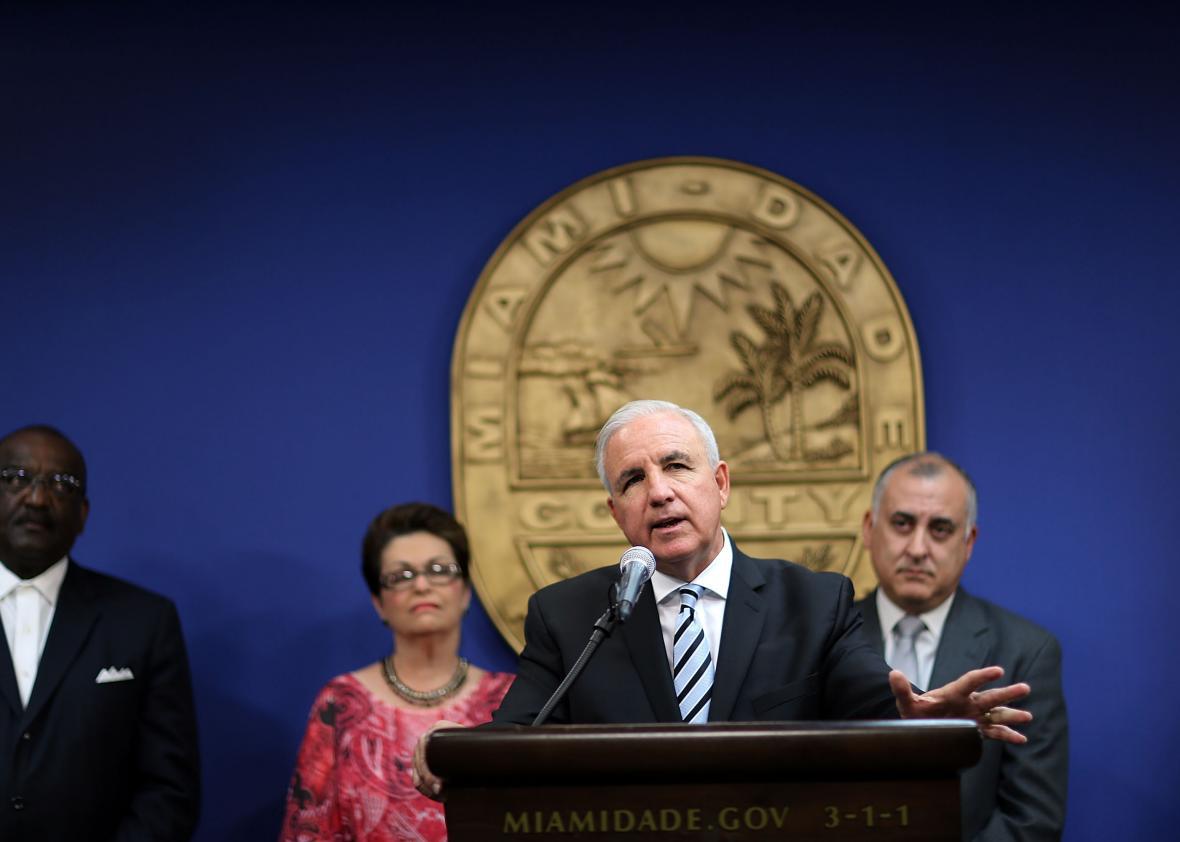One down, 300 to go.
On Thursday, Florida’s Miami-Dade County became the country’s first jurisdiction to abandon its “sanctuary city” policy in response to an executive order issued this week by Donald Trump. Miami-Dade Mayor Carlos Giménez ordered county officials to comply with “detainer requests” from the Department of Homeland Security, which ask local law enforcement to jail suspects without warrant until they can be picked up by federal immigration police.
Giménez had resisted the “sanctuary” label for Miami-Dade, arguing that the county policy—in place since 2013—was motivated by the cost of detention, not the morals. Nevertheless, the Department of Justice had categorized the county (which includes the city of Miami) as a sanctuary, an imprecise term that can apply to cities with any number of immigrant-friendly policies.
“I want to make sure we don’t put in jeopardy the millions of funds we get from the federal government for a $52,000 issue,” Giménez, a Republican, told the Miami Herald. “It doesn’t mean that we’re going to be arresting more people. It doesn’t mean that we’re going to be enforcing any immigration laws.”
The president’s executive order threatens to withdraw federal funding from sanctuary cities, a proposal that legal experts say is unlikely to pass muster in court. Even with help from Congress, it’s not clear how much the president can direct municipal police strategy. Dozens of jurisdictions that operate sanctuary policies, including New York City, Chicago, and the state of California, maintain they are legal and have pledged to fight federal pressure in court.
Giménez gives the president a favorable talking point. But he also opens up Florida’s largest county to legal charges brought by immigrant advocates, who say that the warrantless detention requested by DHS’s Secure Communities policy violates the Fourth Amendment. In 2014, a handful of district courts found that cities jailing suspects without a warrant were guilty of civil rights violations. The S-Comm protocol was discontinued later that year but revived by Trump on Wednesday.
